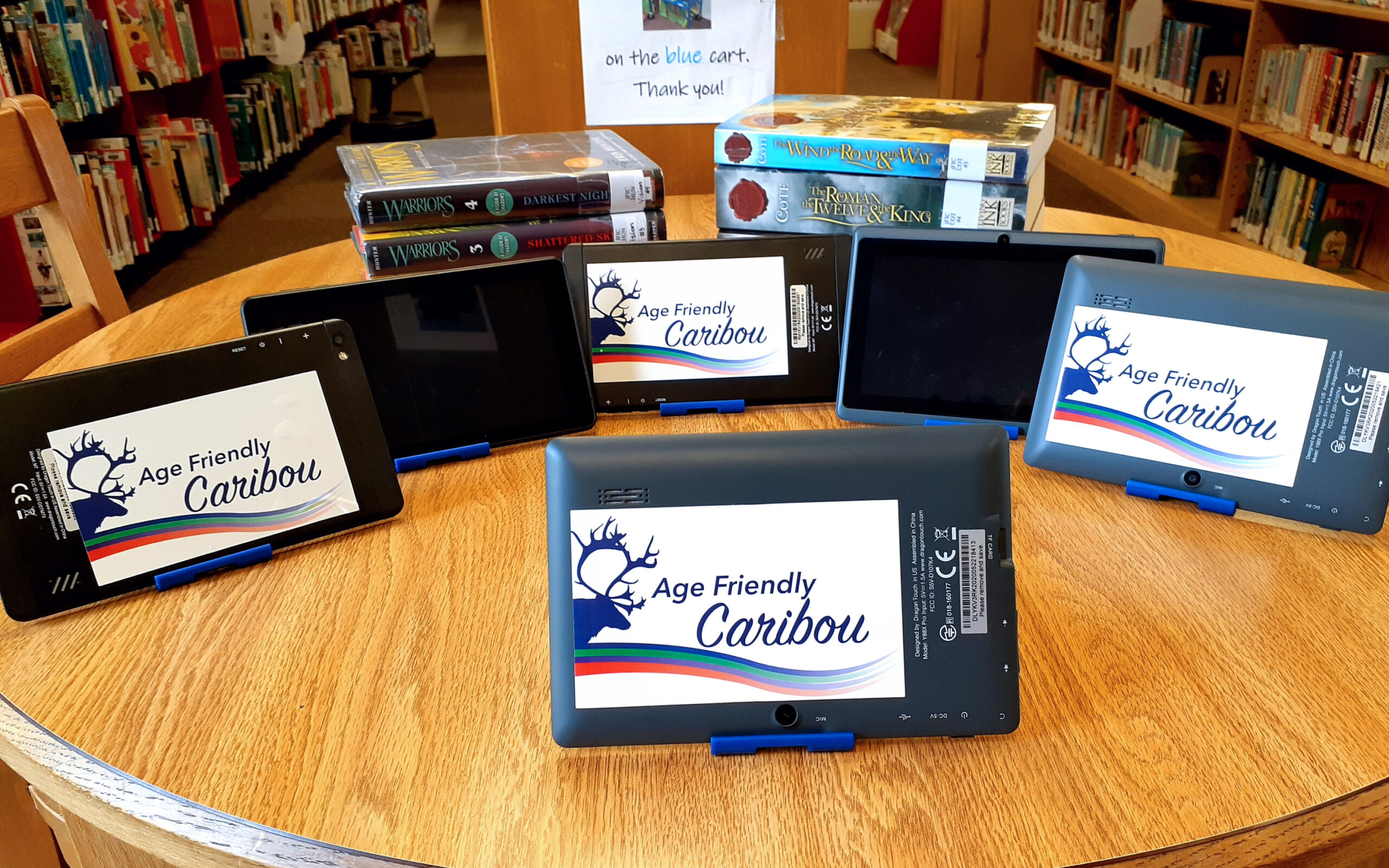
Even though pandemic restrictions have diminished, telehealth looks to be here to stay. But far more Maine residents will need online access before they can benefit.
In Aroostook County, remote health care services could help fill a gap in care in communities where providers can’t keep up with demand, but lack of internet services keeps many from accessing such care. A local advocacy organization and a library are now partnering to help make sure residents can connect.
When COVID-19 restrictions struck, only about a fifth of the people who had been attending Aroostook Agency on Aging’s regular in-person programming could get online for virtual sessions. IT Director Tamara Cote said the barriers ranged from people who had a computer or tablet but needed help using it, to those who didn’t have a device at all, to others who couldn’t get a home internet connection.
“We were dealing with the reality of everyone’s at home, isolating, but their needs hadn’t diminished … it’s just our access was completely eliminated due to COVID,” Community and Volunteer Coordinator Judy Anderson said.
The Agency on Aging has been able to purchase 35 tablets since then, thanks to donations from Maine Community Foundation and Versant Power. It has also added volunteers specifically for tech support, which the agency calls “friendly techies.”
The tablets have been a profound addition to programming, Cote said. While some of the tablets are earmarked for specific groups — for example, people with dementia attending the agency’s daytime memory care programs — the rest have been in constant rotation.
The last major hurdle is Aroostook County’s unpredictable internet service. While the tablets have data, and can get online via cell towers, vast swaths of the region have no service whatsoever. Anderson said that she took a tablet home to test the concept, and found that she couldn’t get a connection.
For residents needing an online doctor’s appointment, that could mean seeking out public spaces with more reliable internet.
The Caribou Public Library’s staff have joined in the effort to help people access the services they need. Working with Age Friendly Caribou and Cary Medical Center, the library installed a bay of six tablets and headphones in a basement meeting room to be used for meetings with health care providers. Age Friendly Caribou received the tablets on a grant, and donated them to the library’s initiative.
“We have a few patrons now who aren’t even that old who do not know the ins and outs of using a computer,” Caribou’s incoming library director Peter Baldwin said. “I think that programs about teaching technology, or at least giving access to easy technology here at the library — that they can use but not necessarily have to marry — is really important up here.”
Tech aid has already become a major part of the day for staff, Baldwin said. COVID-19 just heightened the need.
During the pandemic, telehealth meetings became vital for many physicians, therapists and specialists, popularizing what was once a fairly niche offering.
MaineHealth reported an uptick in telehealth appointments from fewer than 2,000 remote meetings each month before the pandemic to upward of 30,000. And surveys show that although skepticism about the quality of telemedicine appointments was widespread before the pandemic, a vast majority of Americans plan to continue using remote health options in years to come.
In remote areas like northern Maine, telehealth has opened doors for communities largely underserved by healthcare services. Hospitals and doctors’ offices are often overbooked, and wait times for appointments can be months long.
Access to medical specialists has improved vastly in Aroostook County thanks to the popularization of telehealth, Elizabeth Singer, communications coordinator at Cary Medical Center, said. Doctors less frequently have to request patients make a three-hour drive to Bangor or five-hour drive to Portland just for consultation appointments.
Telehealth could also help reduce truancy at appointments, especially during The County’s brutal winters when frigid weather, poor road conditions and early nightfall may be barriers for people getting where they need to go. If Aroostook Agency on Aging could get more of its consumers online, remote care could be the organization’s future.
“If I were going to forecast, I think we’re going to have those that participate most of the time via technology, and then from time to time have a get-together,” Cote said. “It gives us the ability to provide to a greater number of people.”




